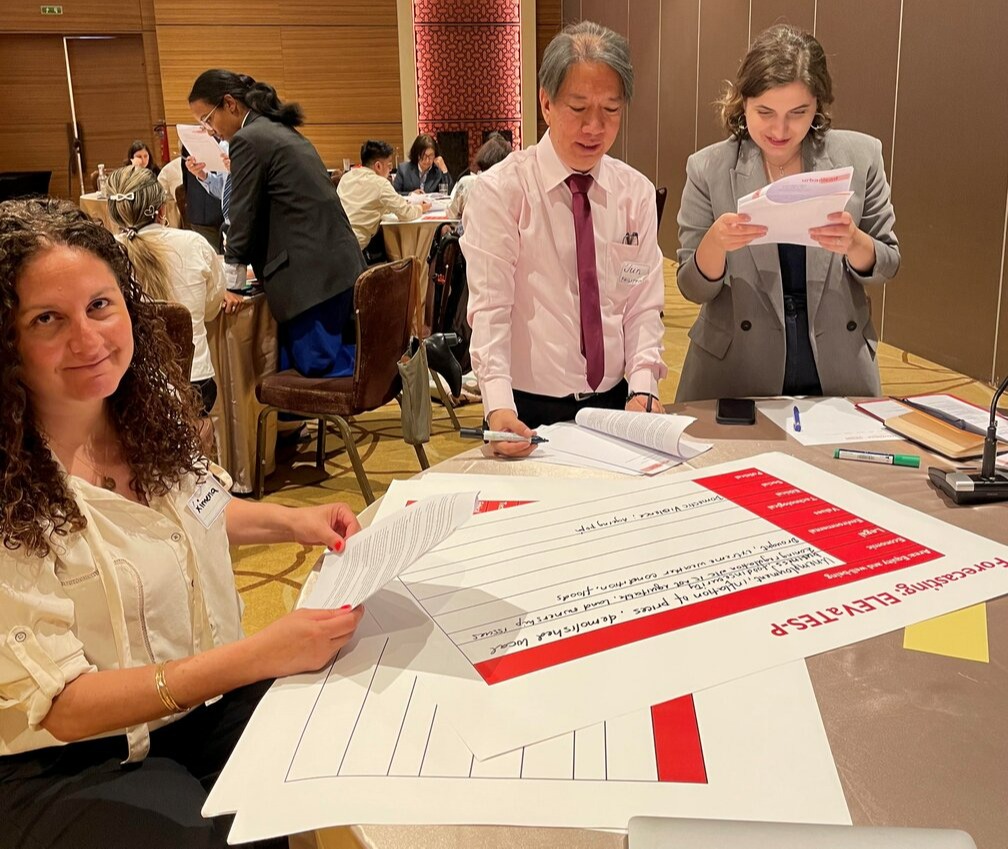Cities today face unprecedented complexity from a range of social and environmental factors. The economic disruption from the COVID19 pandemic, rising prices of food, migration due to conflict, extremes of climate and disasters can disproportionately affect densely populated areas. To achieve optimal health outcomes, governance for health and well-being that is multi-sectoral, participatory and community-enabled provides improved and fairer health opportunities for all. This requires leadership, futures thinking and problem-solving in multi-stakeholder teams.
On 14-15 March 2023, WHO Enhanced Well-being Unit and global experts conducted the Urbanlead (Urban Leadership) Global Training of Trainers in Tunis, Tunisia—a key capacity building activity under the WHO initiative on urban governance for health and well-being supported by the Swiss Agency for Development and Cooperation.
The Training of Trainers was attended by 28 urban leaders representing 10 countries from the 5 WHO regions. The program provides leaders with opportunities to “think outside the box” and use quality improvement tools to accelerate larger interventions to reduce health disparities. “Urbanlead offered me a box of participatory tools to promote collaboration, cooperation and synergic action”, said Professor Dr Md Ashiq Ur Rahman, Khulna University, Bangladesh.

Photo credit: WHO/ Yasmine Anwar
The Urbanlead programme is designed for teams of leaders within a city (representatives of the municipal government, experts across sectors and disciplines, academic partners, and civil society groups) to share experiences, identify governance issues and concerns, and develop governance innovations that can contribute to improving the health and well-being in the city.
The objectives of the training of trainers in Tunis, Tunisia were to:
- equip the trainers with core competencies to act as local facilitators and be able to adapt the Urbanlead curricula to specific regional and country contexts;
- and establish a core pool of trainers able to support the implementation and upscaling of Urbanlead at regional and country levels.
The new pool of trainers will support the second cohort of Urbanlead teams in new and existing cities which are part of the WHO initiative. A first cohort of city leaders from Khulna, (Bangladesh), Douala (Cameroon) and Tunis (Tunisia) completed the Urbanlead Programme in 2022 and Bogota (Colombia) and Mexico City (Mexico) in early 2023; and have developed governance mechanisms to address a priority health and well-being issue they identified. The second cohort of Urbanlead is planned to start mid-2023.
For more information, please contact:
